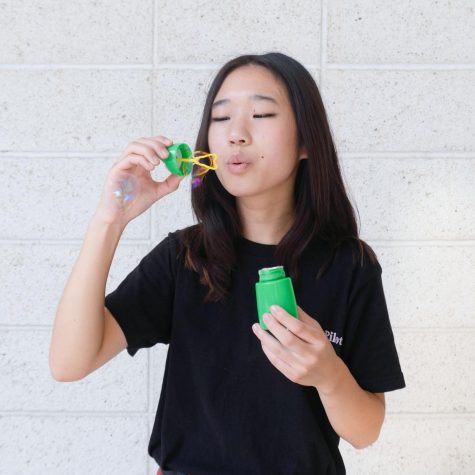Sophomore Students Make a Sustainable Change
From taking shorter showers to limiting screen time, CP and honors chemistry students have been working over the past few weeks to decrease their carbon footprints by making environmentally-conscious decisions in their everyday lives.
For one week, students monitor their normal levels of energy usage in a specific area, such as how much plastic waste they produce or the number of electronic devices they charge. They then try to reduce this amount during the following week by making a sustainable change. Students analyze the data they have collected and summarize the trends they notice in the form of a final artifact.
“I find it fascinating looking at all the different things my students did,” science teacher Jeralyn Newton said. “It’s cool to see, with these types of projects, what everybody took data on and what everyone’s data looked like.”
Although the project is only two years old, teachers are starting to recognize patterns in their student’s findings. Those who make even small alterations to their routines or schedules are seeing a huge difference in the amount of energy they save.
For instance, honors chemistry student and sophomore Megan Sha set a timer for her bathroom lights, making sure they turned off after five minutes, in order to discourage her from taking longer showers. She was able to reduce her showers by an average of six minutes, showing that the project is not only practical, but that her methods can be applied by anybody who wants to start making a change.
The Energy Project sheds light on a wider sustainability movement, which has recently gained traction among teenagers and young adults. As the state of the planet continues to worsen, the actions of the next generation could make an enormous impact on how the future unfolds.
“Earth’s resources are limited, and even though we can enjoy these luxuries right now, there’s no guarantee that we have them in the future,” sophomore Megan Sha said.
And the benefits of the project do not stop at school; many sophomores are able to translate the lessons they learn in chemistry to their outside lives. By creating a more personal experience for students, the science department has guaranteed that the project will have a significant and lasting effect.
“I hope they walk away with this idea of, ‘I might not be able to change the world, but I can make small changes. I can do what’s within my reach, and do my best within that area,’” science teacher Brittney Kang said.
Your donation will support the student journalists of Portola High School. Your contribution will allow us to purchase equipment and cover our annual website hosting costs.

Lauren Hsu is your Opinion Editor and Co-Social Media Manager for her third and final year on the Pilot staff. She is looking forward to making even more...





Michelle Kim | Oct 23, 2019 at 9:14 am
Great article! I really like how you included so many different perspectives. I will definitely refer to this article when I show my friends from other schools what I did!